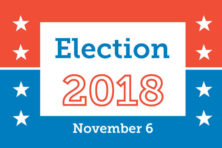Fraud Not a Concern in Local Absentee Voting
- Share
- Tweet
- Pin
- Share
Experts at the Bipartisan Policy Center predict that as many as 70 percent of all ballots cast in the November election will be cast by mail because of the pandemic. As county and municipal clerks contend with an increased quantity of absentee ballot requests this year, voters everywhere have expressed concerns about how reliable the system of mail-in voting is. However, election officials have repeatedly articulated that voting by mail is fair, safe and honest.
Door County Clerk Jill Lau said that she has seen only one case of voter fraud in Door County in 14 years, and that it happened because the individual misunderstood what they were doing. The Sheriff’s Office investigated the incident, and the district attorney decided not to prosecute.
“We have a president saying that there is fraud in mail-in voting, and I don’t know where that comes from,” Lau said. “In Door County at least, that has just not been the case.”
Sister Bay Village Clerk Heidi Teich agreed that there’s a good system in place that starts as soon as a voter requests a mail-in ballot.
“We send ballots out, and they are logged, and we keep a record of when that ballot is returned,” Teich said. “If someone comes to try to vote again, poll workers will see that their name has already been logged.”
Lau said that even though the county has never dealt with the anticipated volume of absentee ballots, she can’t foresee the number being so great that she and the municipal clerks wouldn’t be able to catch fraudulent behavior, given the system’s checks and balances.
“As with everything, it is possible that things can get missed,” she said, “but in Door County, that rarely happens, if at all.”
The state has several systems to purge voter registration lists of the names of deceased people. Each month the Wisconsin Elections Commission receives an electronic file from the Wisconsin Vital Records Office, which keeps all the death certificates filed by county coroners and medical examiners for the previous month. That’s matched electronically with the state’s voter registration list.
“When we find a match, we flag that for the clerk in that jurisdiction,” said Reid Magney, public information officer for the Wisconsin Elections Commission.
The names of those who voted are then run against the names of those who are on record as having died. This can take a month or so following the election, creating the possibility that voter fraud involving a deceased person has occurred. But anyone who wants to vote using a dead person’s information would still need to have the deceased person’s photo ID to vote by mail. Magney said he doesn’t recall that ever happening.
“That doesn’t mean one or two haven’t happened,” Magney said. “Considering we have 3 million votes, if we have any numbers, they would be infinitesimally small,” Magney said.
Within small municipalities such as Sister Bay, Teich said she has the luxury of seeing local obituaries each week to learn who, because of their passing, will no longer be eligible to vote. If she does find that a registered voter is deceased, she notifies the county clerk, who then deactivates the voter in the state election system. However, if she is not aware or notified of someone’s passing, there is nothing she can do about preventing that vote from being counted at the municipal level.
“This past election, we did have one vote from a person who passed away, and because I did not find that out until after this last election, that individual’s vote was counted,” Teich said. “In the event that we learn of a person’s passing before or on Election Day, their ballot will be rejected and not counted in that election.”
Teich said she has also been contacted and asked for her pollbook records when an individual was found to have voted elsewhere, but those situations happen infrequently.
“When they sign the certification, they do affirm that they live in the same place,” Teich said. “We expect that to be true.”


